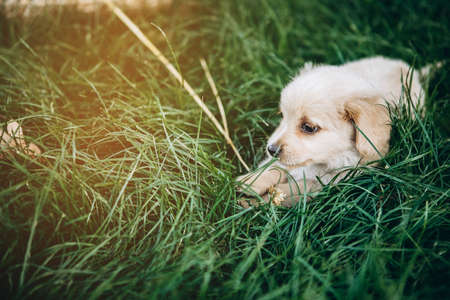1. Dental Problems
Many small pets, such as rabbits, guinea pigs, and ferrets, are prone to dental issues due to improper diet or genetic factors. Their teeth continuously grow throughout their lives, and if they don’t wear down properly, it can lead to painful overgrowths and other complications.
Signs of Dental Problems
Recognizing dental issues early can help prevent serious health concerns. Here are some common signs that your small pet may be experiencing dental problems:
| Signs | Description |
|---|---|
| Drooling | Excessive saliva can indicate pain or difficulty eating. |
| Loss of Appetite | If your pet avoids food, it may have trouble chewing. |
| Weight Loss | Difficulty eating can lead to noticeable weight loss. |
| Swelling Around the Mouth | Abscesses or infections may cause visible swelling. |
| Selective Eating | Your pet may avoid hard foods and only eat soft items. |
How to Prevent Dental Issues
A proper diet and regular monitoring can help keep your small pet’s teeth healthy. Here are some key ways to prevent dental disease:
Provide a Fiber-Rich Diet
Rabbits and guinea pigs need a high-fiber diet consisting mainly of hay. Hay helps wear down their teeth naturally and prevents overgrowth. Fresh vegetables can also supplement their diet, but hay should always be the primary food source.
Offer Safe Chew Toys
Certain chew toys, such as untreated wooden blocks or specialized pet chews, encourage natural tooth wear. Avoid plastic toys that may break into sharp pieces.
Schedule Regular Vet Checkups
A veterinarian familiar with small pets can check for early signs of dental disease during routine exams. If needed, they can trim overgrown teeth safely.
Monitor Eating Habits
Pay attention to any changes in eating behavior. If your pet suddenly stops eating or shows discomfort while chewing, consult a vet immediately.
By taking these precautions, you can help ensure your small pet maintains good dental health and avoids painful complications.
2. Obesity and Poor Diet
Small pets can easily become overweight due to overfeeding and lack of exercise. Many pet owners may not realize that even a small amount of extra food can lead to weight gain in tiny animals. Ensuring a balanced diet with the right nutrients, along with regular playtime, helps maintain a healthy weight.
Signs of Obesity in Small Pets
- Difficulty moving or reduced activity levels
- Visible fat deposits or a round body shape
- Trouble grooming due to excess weight
- Shortness of breath or heavy breathing
- Loss of energy and reluctance to play
How to Prevent Obesity in Small Pets
1. Provide a Balanced Diet
A proper diet is essential for maintaining a healthy weight. Avoid giving too many treats and stick to high-quality food designed for your pet’s species.
| Pet Type | Recommended Diet |
|---|---|
| Rabbits | Hay, fresh vegetables, limited pellets |
| Guinea Pigs | Hay, vitamin C-rich veggies, small amounts of pellets |
| Hamsters | A mix of seeds, grains, and occasional fresh produce |
| Ferrets | High-protein meat-based diet, avoid carbohydrates |
| Birds | A variety of seeds, pellets, fresh fruits, and vegetables |
2. Control Portion Sizes
Overfeeding is one of the main causes of obesity. Follow the feeding guidelines on pet food packaging and consult a veterinarian if unsure about portion sizes.
3. Encourage Regular Exercise
A sedentary lifestyle leads to weight gain. Make sure your pet has enough space and opportunities to move around. Here are some simple ways to promote activity:
- Toys: Interactive toys keep pets engaged and active.
- Playtime: Daily play sessions help burn calories.
- Cage Setup: Provide tunnels, climbing structures, or wheels for movement.
- Outdoor Time: If safe, allow supervised outdoor exploration.
4. Monitor Your Pet’s Weight Regularly
Avoid sudden weight changes by checking your pet’s body condition often. If you notice excessive weight gain, adjust their diet and activity levels accordingly.
A healthy diet combined with exercise ensures that small pets stay fit and live longer, happier lives!

3. Respiratory Infections
Hamsters, guinea pigs, and other small animals are susceptible to respiratory illnesses, often caused by poor ventilation, dusty bedding, or bacterial infections. These infections can make it difficult for your pet to breathe and may lead to more serious health issues if left untreated.
Common Causes of Respiratory Infections
- Poor Ventilation: Small pets need fresh air circulation in their enclosures. Stagnant air can trap bacteria and irritants, leading to respiratory problems.
- Dusty Bedding: Certain types of bedding, such as cedar or pine shavings, can release fine dust particles that irritate the respiratory system.
- Bacterial or Viral Infections: Exposure to bacteria or viruses from contaminated food, water, or unclean habitats can cause infections.
- Temperature and Humidity Changes: Sudden changes in temperature or excessive humidity can weaken a pet’s immune system, making them more vulnerable to infections.
Signs of Respiratory Issues
If your small pet is experiencing respiratory problems, you might notice the following symptoms:
| Symptom | Description |
|---|---|
| Sneezing | Your pet sneezes frequently due to irritation in the nasal passages. |
| Nasal Discharge | A runny nose with clear or cloudy discharge may indicate an infection. |
| Labored Breathing | Your pet may struggle to breathe or show wheezing sounds. |
| Lethargy | A sick pet may become less active and sleep more than usual. |
| Poor Appetite | Your pet may eat less due to discomfort or difficulty breathing. |
How to Prevent Respiratory Infections
Select the Right Bedding
Avoid wood shavings like cedar and pine that produce strong odors and dust. Instead, choose paper-based bedding or aspen shavings that are safer for small pets.
Maintain Proper Ventilation
A well-ventilated cage helps prevent moisture buildup and keeps bacteria from thriving. Avoid placing enclosures in areas with stagnant air or excessive humidity.
Keep the Habitat Clean
Cages should be cleaned regularly by removing soiled bedding and disinfecting surfaces. Fresh food and water should be provided daily to reduce bacterial contamination.
Avoid Temperature Extremes
Keeps pets in a stable environment with moderate temperature and humidity levels. Avoid drafts and sudden changes in climate that could stress their respiratory systems.
Sick Pet? Seek Veterinary Care
If you notice signs of respiratory distress, consult a veterinarian immediately. Early treatment can prevent complications and ensure your pet recovers quickly.
4. Parasites and Skin Conditions
Fleas, mites, and fungal infections are common in small pets. These pesky parasites can cause itching, hair loss, and skin irritation, making your pet uncomfortable. Regular care and preventive measures can help keep their skin and fur healthy.
Common Parasites in Small Pets
| Parasite | Symptoms | Prevention |
|---|---|---|
| Fleas | Excessive scratching, red skin, flea dirt in fur | Regular grooming, flea treatments, clean bedding |
| Mites | Bald spots, crusty skin, constant itching | Routine vet check-ups, keeping habitat clean |
| Fungal Infections (Ringworm) | Circular hair loss, flaky or scaly skin | Avoid damp environments, sanitize cages frequently |
How to Prevent Skin Conditions in Small Pets
1. Regular Grooming
Brushing your pet’s fur and checking for any signs of parasites helps detect issues early. Some small pets may also benefit from occasional baths with pet-safe shampoo.
2. Keep Their Living Space Clean
A dirty cage or bedding can harbor parasites and bacteria. Clean and disinfect your pet’s enclosure regularly to prevent infestations.
3. Provide a Healthy Diet
A well-balanced diet strengthens the immune system, making it easier for your pet to fight off infections and maintain healthy skin and fur.
4. Schedule Routine Vet Check-Ups
Your vet can detect early signs of skin conditions and recommend appropriate treatments before they become severe.
Taking these preventive steps ensures that your small pet stays comfortable and free from itchy, irritating skin problems.
5. Digestive Issues
Gastrointestinal problems, such as bloating and diarrhea, are common in small pets. These issues can be caused by poor diet, sudden changes in food, or stress. If left untreated, digestive problems can lead to dehydration and other serious health concerns.
Common Causes of Digestive Issues
- Poor Diet: Low-quality food or an unbalanced diet can upset your pets stomach.
- Sudden Diet Changes: Switching foods too quickly can cause digestive distress.
- Stress: Environmental changes, loud noises, or new pets in the home may contribute to stomach issues.
- Lack of Hydration: Not drinking enough water can lead to constipation and other digestive troubles.
How to Prevent Digestive Problems
| Prevention Method | Description |
|---|---|
| Provide High-Quality Food | Choose a well-balanced diet suitable for your pet’s species and age. |
| Avoid Sudden Diet Changes | If switching foods, introduce the new diet gradually over several days. |
| Ensure Fresh Water Availability | Your pet should always have access to clean, fresh water. |
| Minimize Stress Factors | Create a calm environment and avoid sudden disruptions in routine. |
| Monitor for Symptoms | If you notice bloating, diarrhea, or loss of appetite, consult a vet promptly. |
When to See a Vet
If your pet experiences persistent diarrhea, vomiting, severe bloating, or a lack of appetite for more than 24 hours, it’s best to seek veterinary care. Early treatment can prevent complications and ensure your pet stays healthy.


